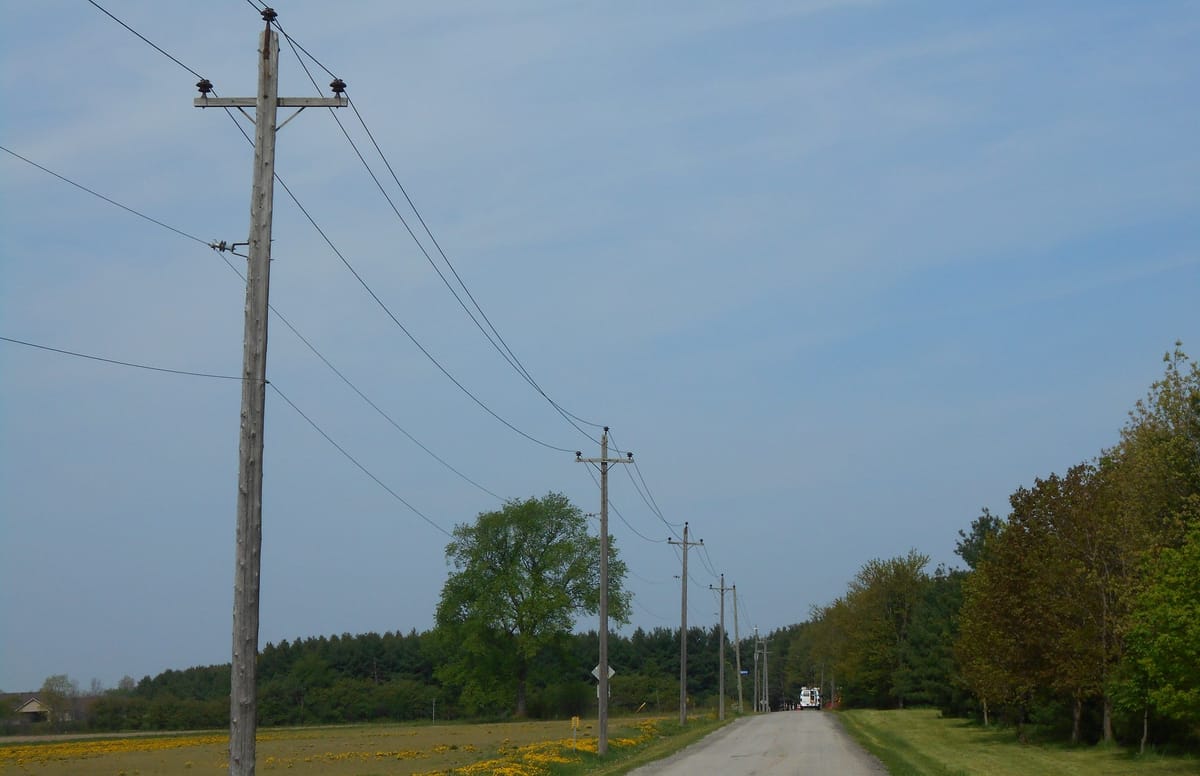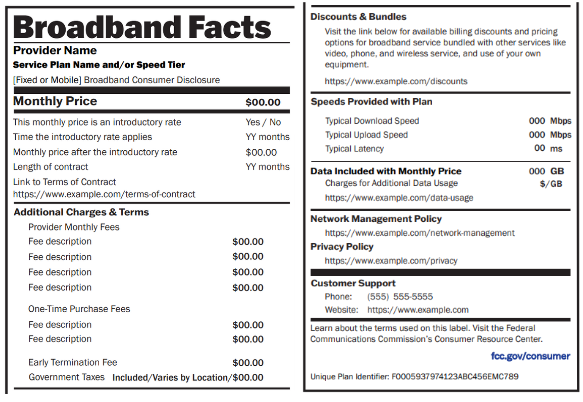Utility Companies Push Back Against FCC's New Pole Regulations
Seven telecom organizations oppose an electric utility association's petition to the FCC, which seeks to overturn pole attachment changes.
Jericho Casper

WASHINGTON, February 16, 2024 – Seven telecom organizations filed comments to the Federal Communications Commission Tuesday opposing an electric utility association's reconsideration petition, which attempts to remove some of the pole attachment reforms the FCC adopted in December.
In mid-January, the Edison Electric Institute petitioned the FCC to reconsider or amend its "grandfathered pole ruling."
The December declaratory ruling requires pole owners to share in the costs of preparing utility poles for replacement even if they are considered ‘grandfathered’ – meaning they were installed or existed before certain regulations were enacted.
This ruling found that when an attacher requests access to a pole that is out of compliance with current safety standards, replacing the pole is “not necessitated solely” by the attacher’s request, and both the pole owner and the attacher who wants access to a pole must share in replacement costs.
The EEI, which represents U.S. investor-owned electric companies, wants the FCC to either eliminate or provide more clarity on the ruling it made in December that states the cost to replace ‘grandfathered poles’ cannot be solely attributed to an attacher request.
In response to EEI’s petition to the FCC, seven different telecom industry and advocacy organizations filed comments opposing EEI’s arguments, and claiming the association’s arguments are unfounded and exaggerate cost burdens put on pole owners.
The opposing statement by the Internet and Television Association, NCTA, reflects the viewpoint of attachers, alleging that utilities often use a new attachment as an opportunity to shift the responsibility of installing a new pole onto the attacher, when a pole fails to meet a utility's construction standards. This claim is backed by input from several commenters in the docket.
The Schools, Health, and Libraries Broadband Coalition chimed in, stating, "All the commission has decided is that the attacher should not bear the entire cost, but it has not yet determined whether the owner of the 'grandfathered' pole is responsible for 1%, 99%, or something in between." The organization added, "When the commission recommends the proper amount of cost to be allocated to the parties, then perhaps EEI could have an argument that the burden is 'enormous', but until then, EEI's point is inapt."
Five more organizations called for the FCC to reject EEI’s request to strike or alter the treatment of grandfathered poles – INCOMPAS, ACA Connects, Wireline Infrastructure Association, Crown Castle Fiber, and Altice USA – claiming it is perfectly logical and warranted for the pole owner to bear some portion of that cost.
EEI’s petition for reconsideration further called for the FCC to provide specific and clear guidelines on when a utility pole owner must give a copy of its easement – a legal document granting someone the right to use the property – to an attacher.
Xcel Energy, drawing from its operational expertise, voiced agreement with EEI, stating that the new requirement for utility pole owners to provide copies of easements to potential attachers is based on flawed assumptions these organizations maintain copies of easements or track easement-related information as part of its regular operations.
Xcel retrieves these needed documents from public records rather than bearing the cost and burden of maintaining them internally. This information is public and managed by relevant state and local authorities, the utility company wrote. The Coalition of Concerned Utilities similarly filed comments in support of EEI’s petition.
The commission will now have until February 28 to reply to the comments received on the fourth report and order and declaratory ruling in this proceeding.
When voting to adopt the new rulings at its December meeting, FCC Chairwoman Jessica Rosenworcel explained that the updated pole attachment rules aim to alleviate obstacles that may impede broadband deployments funded by the $42.5 billion broadband expansion program under the Infrastructure, Investment, and Jobs Act.










Member discussion